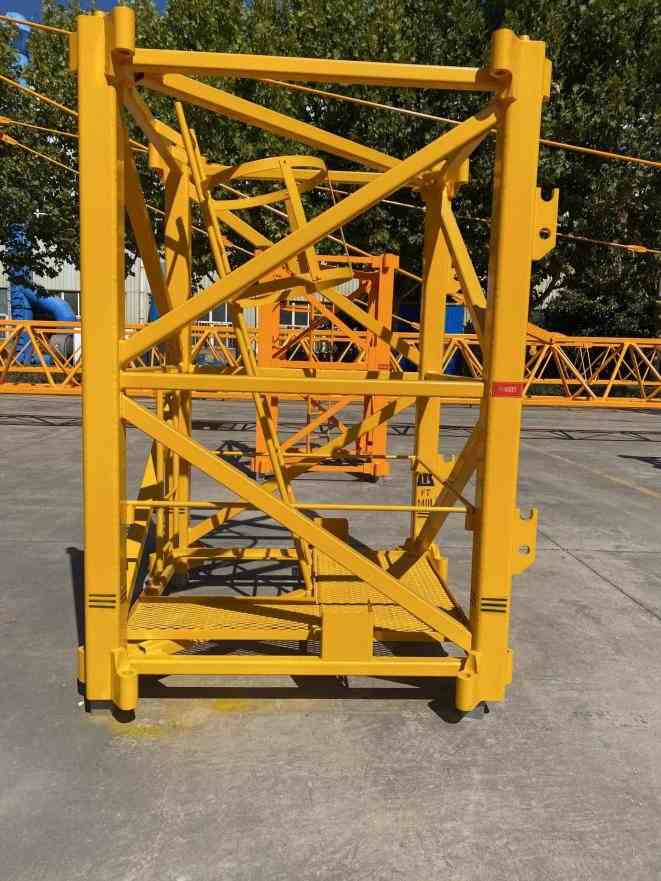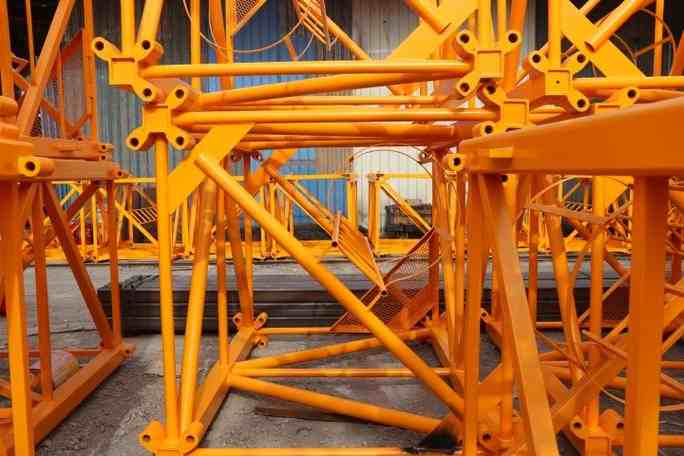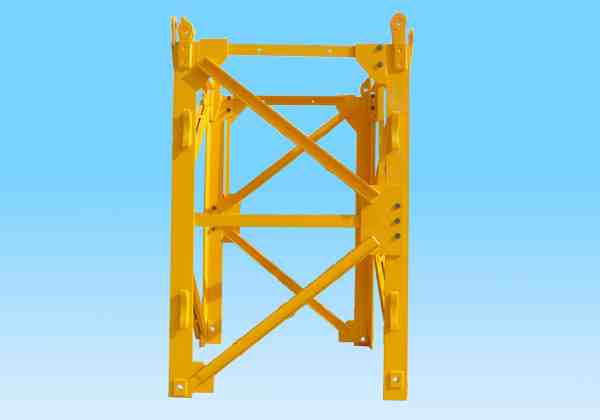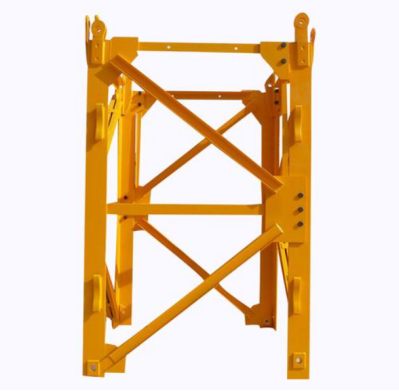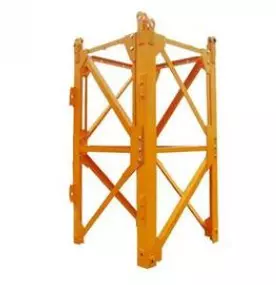A standard tower crane mast typically has 4 to 20+ sections, depending on the model, lifting height, and jobsite needs.
But — that’s only part of the story.
Let’s go deeper to help buyers make informed procurement decisions.
What Is a Mast Section?
The mast section is the core modular steel structure that gives the tower crane its height and stability.
It’s built from high-grade structural steel, designed to bear:
- Vertical loads
- Wind forces
- Torsional stresses
- Dynamic loads during lifting
- Each section connects to the next via high-strength bolts or pins.
- Mast sections stack vertically to create the full tower height.
Typical Mast Section Dimensions
| Crane Type | Height Per Section | Cross-Section Width |
| City Cranes | 1.2 – 2.5 meters | 1.0 – 1.6 meters |
| Medium Construction Cranes | 2.5 – 6.0 meters | 1.6 – 2.3 meters |
| High-Rise Tower Cranes | 3.0 – 10.0 meters | 2.0 – 2.5 meters |
How Many Mast Sections Are Typically Used?
| Project Type | Approximate Number of Sections |
| Low-rise Buildings | 4 – 8 sections |
| Mid-rise Buildings | 8 – 20 sections |
| High-rise Construction | 20 – 60+ sections |
| Super High-rise (>300m) | 60 – 100 sections |
What Determines the Number of Mast Sections?
Project Height
The taller the structure, the more mast sections are required.
Example
80-meter project = ~25 mast sections (using 3.2m sections)
Crane Type & Model
- Hammerhead, luffing jib, and flat-top cranes have different mast designs.
- Some models use longer but fewer sections.
Anchorage System
| Anchoring Method | Max Height Range |
| Free-standing | up to 50m |
| Tied-in / Anchored | up to 300m+ |
| External Climbing | 300 m+ super high-rise |
Wind Load Calculations
- Taller cranes face higher wind pressure.
- Wind zones influence:
- Section length
- Steel thickness
- Bracing designs
Climbing System Type
- External climbing systems allow for additional mast sections during construction.
- Internal climbing modifies mast configurations dynamically.
Engineering Formula
Total Crane Height = Mast Section Height × Number of Sections
- Example: 5m section × 20 sections = 100 meters total height.
Mast Sections vs Maintenance Complexity
| Section Count | Maintenance Level |
| <10 | Low complexity |
| 10–20 | Standard workload |
| 30+ | High complexity (needs specialized inspection protocols) |
Note: More sections = more bolted joints = higher fatigue and maintenance load.
Real-World Models — Mast Section Range
| Crane Model | Typical Mast Sections |
| GJJ SC200 | 8 – 30 |
| POTAIN MDT 219 J10 | 8 – 20 |
| ZOOMLION T7020 | 12 – 40+ |
| ALIMAK Hoists | 5 – 40 |
| XCMG TC6013-8 | 10 – 25 |
⚠ Maintenance Tip
For high mast counts:
- Frequent bolt torque checks
- Inspect weld seams regularly
- Monitor sway or misalignment after storms or strong winds
- Use NDT (Non-Destructive Testing) for weld cracks on tall towers
Spare Parts Strategy for Buyers
| Spare Part | Reason to Stock |
| Mast Sections | Quick replacement for damaged units |
| Bolts & Pins | High vibration wear |
| Bracing Components | For lateral stability |
| Alignment Shims | Adjust vertical misalignments |
Compatibility Risks: The Costliest Mistake
Mixing mast sections from different suppliers without verification may lead to:
- Bolt hole misalignment
- Dimensional incompatibility
- Structural instability
- Costly on-site modifications
✅ At CPTC, we provide full compatibility verification for:
- GJJ
- ZOOMLION
- POTAIN
- ALIMAK
- BAODA
- VERTILIFT
- ORBIT
- CREDO
Case Study: Real Failure Example
Project: 45-section tower crane on a high-rise in Southeast Asia
Issue
The tower sways after a windstorm
Inspection Findings
- 4 loose bolts in the upper mast
- 1 hairline crack in brace weld
- Minor misalignment due to torque errors
Corrective Actions
- Immediate load reduction
- Retaining the upper 20 sections
- Realignment using hydraulic jacks
- Full NDT inspection
Key Takeaway: More mast sections = higher sensitivity to precision and weather.
Why Global Contractors Source Mast Sections from CPTC
| CPTC Advantage | Buyer Benefit |
| Direct Factory | Accurate dimensions & certified welding |
| 15+ Years Experience | Expert technical consulting |
| Global Compatibility | Full model cross-compatibility |
| Fast Delivery (5–10 Days) | Avoid costly delays |
| Lifetime Support | Long-term peace of mind |

